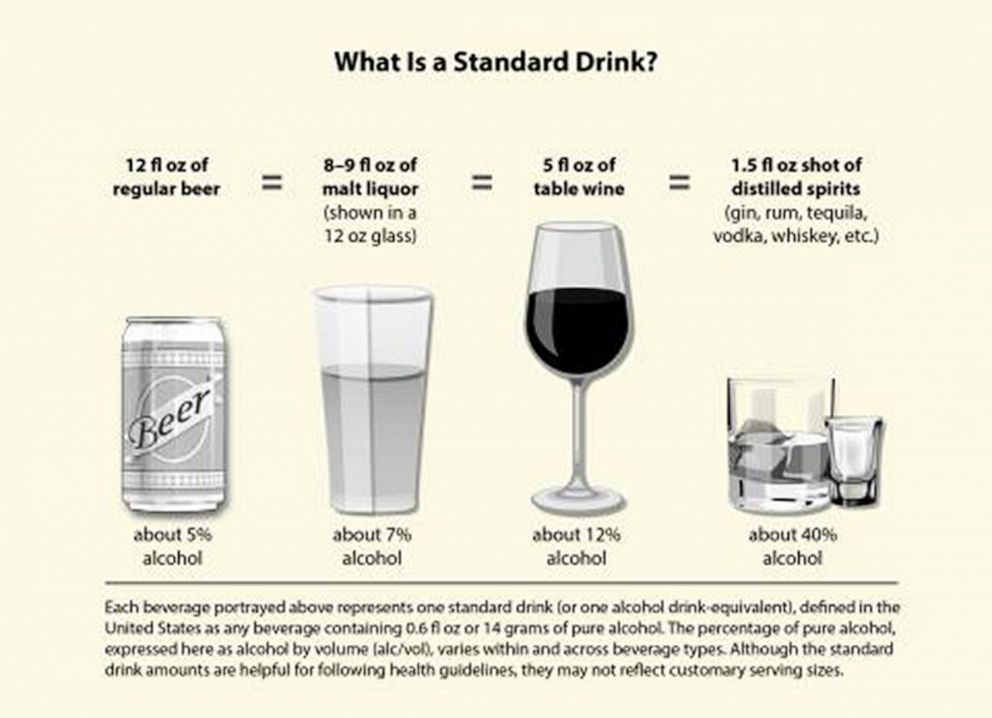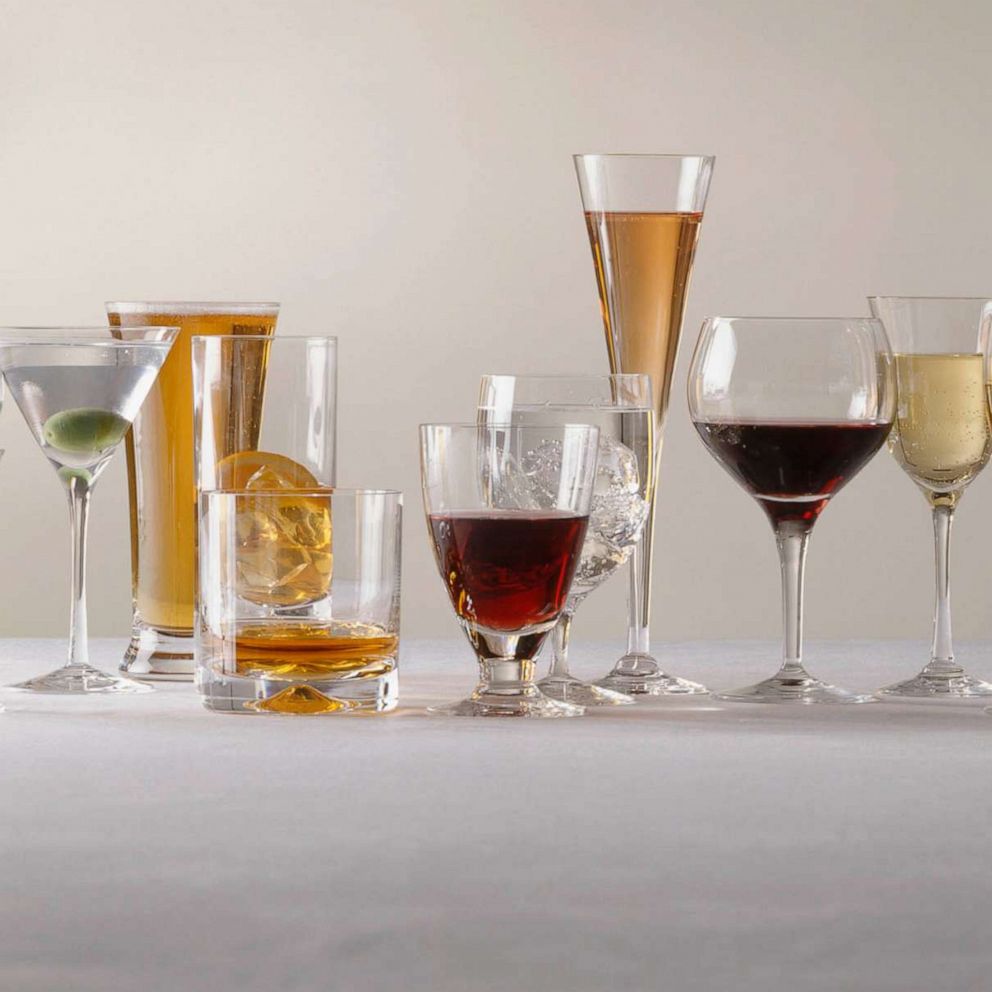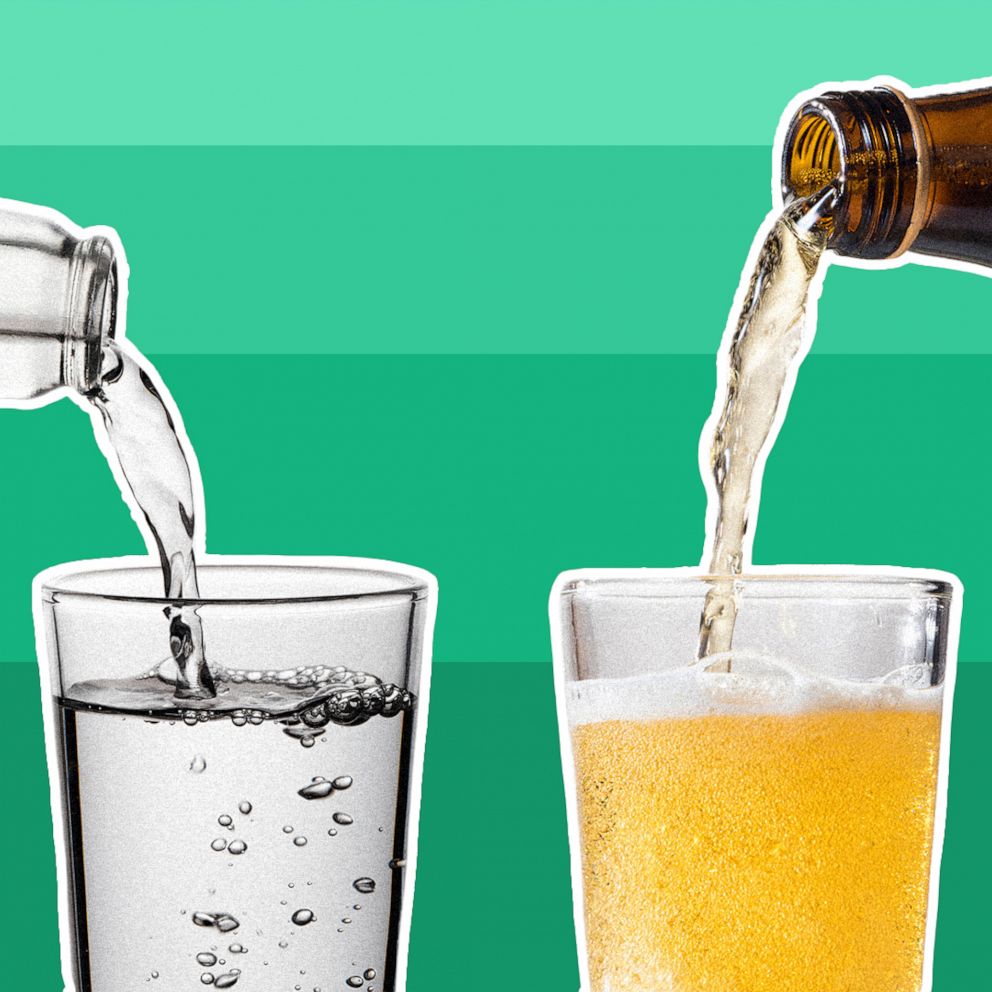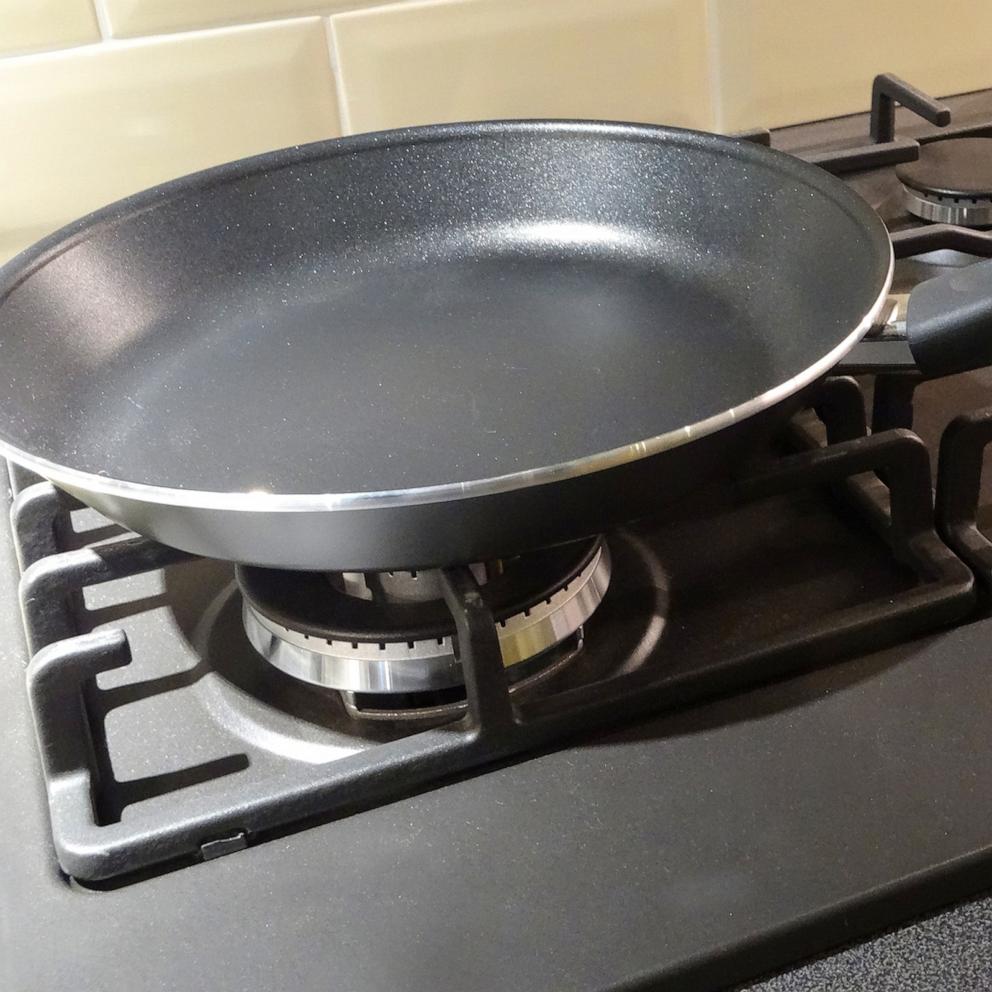New research shows even moderate drinking isn't good for your health
Drinking a glass of wine a day will not help you live longer, according to a new analysis of alcohol research that debunks a longstanding belief about the possible health benefits of drinking alcohol moderately.
The analysis, published recently in JAMA Network Open, looked at over 100 studies with nearly 5 million participants in all.
It found not only no significant health benefit to moderate alcohol consumption, but also that drinking a daily serving of alcohol of less than 1 ounce for women and around 1.5 ounces for men increased the risk of death.
"When you talk about risk versus benefit, it's one thing to say there is no benefit," said Dr. Jennifer Ashton, a board-certified OB-GYN and ABC News chief medical correspondent, who was not involved in the research. "It's another thing, at certain levels, to find a risk, and that's what this new research found."
For women, a moderate alcohol intake per week is defined as seven servings of alcohol or less. For men, it is 14 servings of alcohol or less per week, according to the U.S. Centers for Disease Control and Prevention.
Heavy drinking is typically defined as consuming eight drinks or more per week, according to the CDC.
One serving of alcohol is defined as 5 ounces for wine and just 1 1/2 ounces for hard alcohol, far less than what is typically served in bars, restaurants and people's homes.

The new analysis found that people who drank more than 2 ounces of alcohol a day had the highest risk of death, about 35% higher than people who drank more moderately.
The risk of death was also found to be greater for women, with a 61% increased risk for women who drink more than 2 ounces of alcohol per day.
Previous research has already shown that just as women metabolize alcohol differently than men, they also face more serious health consequences.
Women are more susceptible to alcohol-related heart disease than men; alcohol misuse produces brain damage more quickly in women than in men; women may be more susceptible than men to alcohol-related blackouts, or gaps in memory; and women who regularly misuse alcohol are more likely than men who drink the same amount to develop alcoholic hepatitis, a potentially deadly condition, according to the National Institute on Alcohol Abuse and Alcoholism.
Data shows that even casual drinkers face a greater risk of cancer, most commonly liver and throat cancers but also colon and head and neck cancers, in addition to breast cancer.
Drinking alcohol is listed by the Department of Health and Human Services as a known human carcinogen.

In 2020, the American Cancer Society updated its guidelines to say that cutting alcohol out of a person's diet completely is best for cancer reduction and prevention.
Ashton said that it's important for people to talk to their healthcare providers about their alcohol consumption to make the most informed decisions.
"Alcohol is a known carcinogen. We know it's associated with an increased risk of cancer," Ashton said. "But it's also part of our social fiber and our culture, so it's not an easy decision."
Ashton also noted though that the data is "crystal clear" that abstaining completely from alcohol is best for a person's overall health.
For questions and concerns about alcohol use, SAMHSA, the Substance Abuse and Mental Health Services Administration, has a 24/7 free and confidential helpline available at 1-800-662-HELP (4357), and online at samhsa.gov/find-help/national-helpline.







